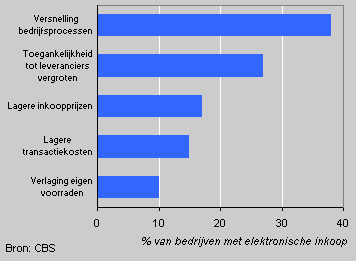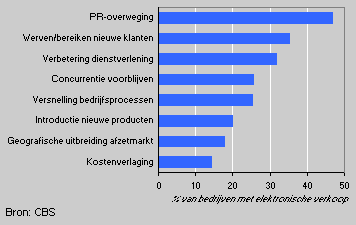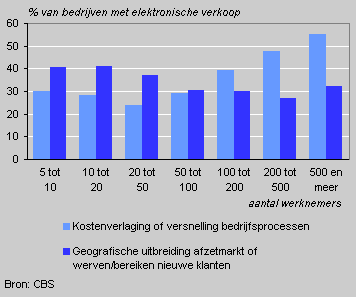Dutch companies and e-commerce?

The number of connections to the Internet has risen sharply in the Netherlands in recent years. The use made of this digital network is growing even faster though.
In1995, for example, only five percent of companies received orders for their products via the Internet. By 2001 one third of companies were doing business electronically. Four percent of total turnover of Dutch companies was generated by orders received through the Internet.
Different reasons
Companies have various motives for using the Internet to buy or sell products. They buy products via the Internet for purposes of efficiency, but sell their own products via the Internet more to boost their image. Cost cutting is apparently less important in both cases.
Main reasons for buying via the Internet

Electronic purchases
Companies purchase products electronically in order to speed up administrative processes, such as order management and financial administration. They also find it reasonably important that they have more access to suppliers. Any direct saving on costs, lower prices or smaller stocks are less important reasons.
Main reasons for selling via the Internet

Electronic sales
Companies who sell their products via the Internet do so mainly for PR. In addition they hope to expand their market and reach new customers. These motives go hand in hand: offering alternative ways to order products is a service for existing customers and at the same time it results in an improved image for the company.
Other reasons for companies to use the Internet are to keep ahead of the competition and to speed up company processes. Direct cost reduction is apparently less important.
Reasons for using the Internet by company size

Company size
How important companies find the various reasons for selling through the Internet depends on how big they are. For large companies business economic motives (speeding up processes and cost saving) are relatively important. For smaller companies, on the other hand, increasing their market (geographically or by recruiting new customers) is more important.
Lydia Geijtenbeek and Andries Kuipers